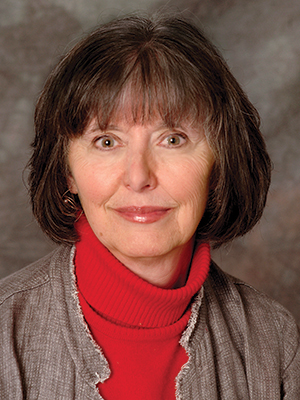
Hester Hill Schnipper Photo courtesy of Beth Israel Deaconess Medical Center
VERY FEW OF US enjoy asking for help, but we all need to learn this skill while going through cancer treatment and recovery. We may be so accustomed to taking care of everyone else and putting our own needs last that we find it almost impossible to shift our patterns and thinking.
A cancer diagnosis is a game-changer that challenges these attitudes. Self-reliance is overrated, and asking for help is not a failure of character or proof that we are wimpy, dependent or incapable. In fact, it means that we are wise and brave enough to acknowledge our limits, consider our resources, and make good choices.
To shake the guilt that sometimes comes with asking for support, first remember these two things:
1) Your family and friends want to be helpful; you are being kind to them when you accept their offers of assistance.
2) This situation of needing help will not last forever. You may not be able to give back equally to any one person, but you will pay it forward in life by being present and helpful to others in the future.
Once you’ve accepted these truths, the following strategies can help make getting the assistance you need easier:
3) Practice saying, “Yes. Thank you.”
4) Be specific about your needs. If someone leads with a vague offer of availability, respond with two or three suggestions of what they might do.
5) Keep a list of errands in a central location, such as by the phone, so you can refer to it when people call to ask if you need anything while they are out.
6) Keep another list of household tasks. Include everything that occurs to you: raking leaves, planting bulbs in the fall, changing the sheets on your bed and washing the used ones or vacuuming the downstairs of your house.
7) Consider a third list of pleasant favors. Ask your friend to come for coffee and bring your favorite muffin, go with you to an afternoon movie, or pay a short visit the day after chemotherapy.
8) When asking for help, decide what might be most manageable for that person who is providing assistance. For example, you could ask the parent of your child’s friend for some child-care coverage and ask your neighbor to pick up some milk and eggs at the market.
9) One reason many of us hesitate to ask for a favor is that someone might say no. A few free online websites (caringbridge.org,lotsahelpinghands.com or managecancer.org) allow you to list what you need and make it easier for others to volunteer. These websites remove some of the awkwardness in asking for help and are password-protected so you can maintain your privacy.
Learning to ask for and accept help is a valuable skill during treatment, and it will also aid you in providing assistance to friends in need throughout your life.
Cancer Today magazine is free to cancer patients, survivors and caregivers who live in the U.S. Subscribe here to receive four issues per year.




